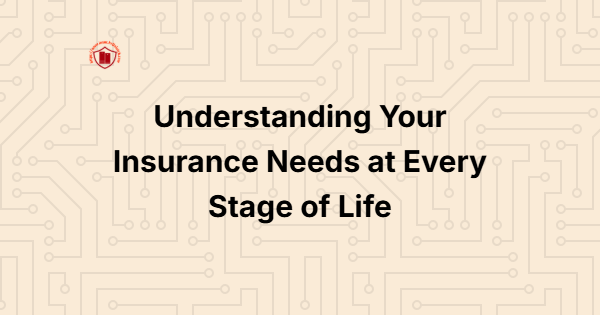
Insurance is an essential tool for financial security, providing a safety net against unexpected events and helping manage risk. As we go through different stages of life, our insurance needs evolve. What worked for you in your 20s may no longer be sufficient in your 40s, and your requirements will change again when you reach retirement age. Understanding these changes and adjusting your insurance coverage accordingly is crucial for ensuring peace of mind and financial protection.
Insurance Needs in Your 20s: Starting Your Journey
In your 20s, life is full of new beginnings. You might have just started your career, completed your education, or even moved out on your own. At this stage, you may not feel the need for extensive insurance coverage, but it’s the perfect time to lay the groundwork.
Health Insurance: If you’re still covered under a parent’s health plan, that’s great, but it’s worth looking into your own health insurance options as you begin to build independence. Medical emergencies or unexpected health issues can be costly, so it’s important to ensure you have coverage. Many young adults opt for plans with lower premiums but higher deductibles.
Auto Insurance: If you own a car, auto insurance is a must. If you’re a new driver, you may qualify for discounts for being a student or for maintaining a clean driving record. Compare policies to ensure you’re getting the right coverage without overpaying.
Renters Insurance: If you’re renting, consider renters insurance. It’s relatively affordable and protects your belongings in case of theft, fire, or other disasters. While your landlord’s insurance covers the building, it won’t cover your personal items, so this is a smart and affordable choice.
Insurance Needs in Your 30s: Building and Protecting Assets
In your 30s, you’re likely to have more financial responsibilities and may be considering big life milestones such as buying a home, starting a family, or growing your career. With these changes, your insurance needs will also evolve.
Life Insurance: If you have dependents—such as a spouse, children, or aging parents—you should seriously consider life insurance. A term life insurance policy can provide financial protection for your loved ones in the event of your untimely death. It’s easier to lock in affordable rates while you’re younger and healthier.
Homeowners Insurance: If you’ve bought a home, you’ll need homeowners insurance. This coverage protects both your house and personal property from damage or theft, and also includes liability protection in case someone is injured on your property.
Disability Insurance: As your income grows and you become more dependent on it to support your family, disability insurance becomes more important. This coverage provides income replacement if you are unable to work due to illness or injury.
Insurance Needs in Your 40s and 50s: Protecting What You’ve Built
By your 40s and 50s, you’re likely at the peak of your career and may have a substantial amount of assets and savings. With these achievements come increased responsibility to protect your family, your wealth, and your future.
Life Insurance: At this stage, life insurance is still crucial, especially if you have growing children or a mortgage. You may also want to consider permanent life insurance, which can build cash value over time and be used for future needs like retirement.
Long-Term Care Insurance: As you approach retirement age, long-term care insurance becomes important to help cover the costs of assisted living, nursing home care, or home health care should you need it. This type of coverage can help protect your savings and ensure you’re not burdening your family with high medical costs.
Umbrella Insurance: An umbrella policy provides extra liability protection beyond the limits of your auto or homeowners insurance. This is particularly important if you have significant assets, as it helps safeguard you from lawsuits and large claims.
Insurance Needs in Retirement: Ensuring Peace of Mind
Once you retire, your insurance needs will shift again. You’ll no longer be working, and your income may decrease. Therefore, it’s vital to have the right coverage in place to protect your health and assets during retirement.
Health Insurance: For retirees, Medicare becomes a primary form of health insurance, but it doesn’t cover everything. You may still need supplemental insurance or long-term care insurance to cover gaps in coverage.
Life Insurance: Life insurance can be part of an estate plan, providing funds to cover final expenses or leave a legacy for your loved ones.
Homeowners and Auto Insurance: If you still own a home or car, maintaining adequate homeowners and auto insurance is essential to protect your property and assets.
Conclusion
At each stage of life, your insurance needs will change, and it’s crucial to review and update your policies regularly. Whether you’re just starting out, raising a family, or nearing retirement, having the right coverage in place will provide financial security and peace of mind for you and your loved ones. Keep your goals and priorities in mind as you make insurance decisions, and don’t hesitate to seek advice from a financial advisor to ensure your coverage aligns with your current and future needs.

Lin Min Thant